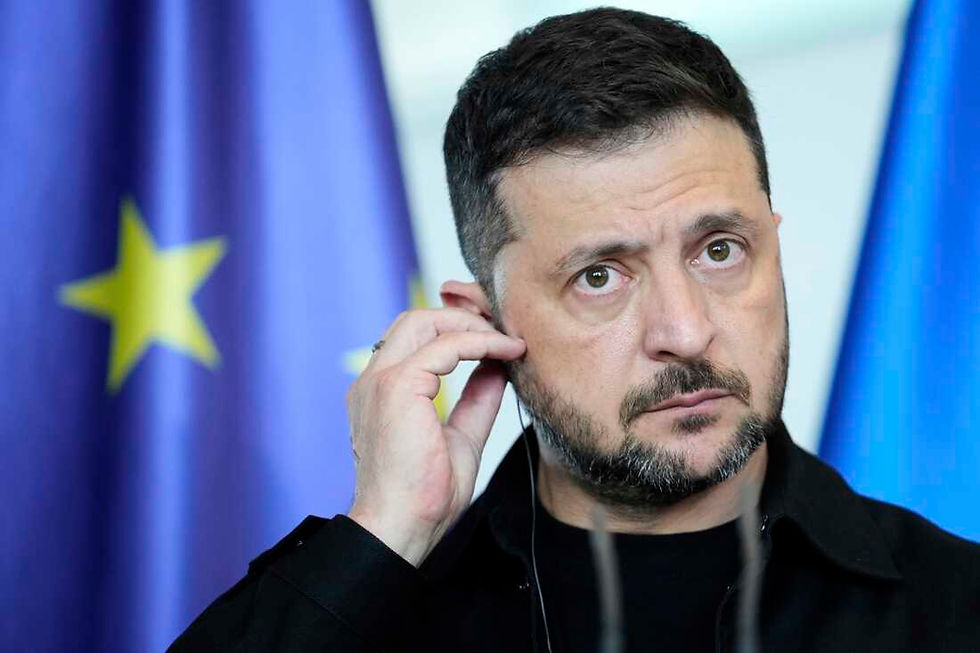Ceasefire in Jeopardy as Trump Warns Israel Against Further Strikes on Iran
- Joe Harris
- Jun 24
- 2 min read

Washington/Tehran/Tel Aviv, 24 June 2025 — U.S. President Donald Trump has sharply warned Israel not to carry out further attacks on Iran, hours after a fragile ceasefire between the two countries was reportedly put into effect. His remarks come amid escalating tensions and accusations of violations from both sides.
The ceasefire, brokered by the United States and Qatar, was meant to end what Trump called the "12-day war" between Iran and Israel. Trump initially declared on his Truth Social platform at 22:00 GMT on Monday that a truce had been “fully agreed,” with official confirmation from both countries following in the early hours of Tuesday.
However, hours after the ceasefire began, the Israeli Defense Forces (IDF) accused Iran of launching new missiles toward Israeli territory. Israel's Foreign Minister, Israel Katz, called it a "complete violation" of the agreement and announced that Israel would resume attacks on regime targets and “terrorist infrastructures” in Tehran.
In response, Iran’s Islamic Revolutionary Guard Corps (IRGC) insisted that their strikes occurred just moments before the ceasefire deadline, targeting military and logistical hubs in Israel. The IRGC also claimed that Israel had launched a “three-phase military operation” after the ceasefire began, violating the terms of the truce.
Trump, visibly frustrated, told reporters outside the White House, “There was one rocket that I guess was fired overboard after the time limit and now Israel is going out. These guys gotta calm down.” He also posted online: “Do not drop those bombs,” directly addressing Israel.
Civilian Toll Mounts
The latest exchanges have continued to take a toll on civilians. Iran’s health ministry reported on Tuesday that 610 people have been killed and 4,746 injured due to Israeli airstrikes since the conflict began on June 13. Meanwhile, Israel has reported 28 deaths, including four on Tuesday in Beersheba.
Air defence systems in Tehran were heavily engaged overnight, with Iranian residents reporting some of the most intense bombardments since the beginning of the war.
Origins of the Conflict
The conflict ignited when Israel launched surprise strikes on Iranian nuclear and military facilities on June 13. Israel justified its actions by claiming Iran was on the verge of developing a nuclear weapon. The U.S. later joined the offensive, targeting Iran’s deeply buried Fordo enrichment site with so-called “bunker buster” bombs.
Iran maintains that its nuclear program is strictly for civilian use. However, international concerns have escalated after the UN’s nuclear watchdog reported that Iran had enriched over 400kg of uranium to 60% purity—far above civilian requirements and near weapons-grade.
Despite U.S. officials claiming recent attacks have significantly delayed Iran's nuclear ambitions, Iranian media insists that targeted facilities had already been evacuated, minimizing damage.
Outlook Remains Uncertain
As accusations fly and violence continues despite the ceasefire, diplomatic efforts appear to hang by a thread. Iran’s Supreme National Security Council warned that any future Israeli aggression would be met with a “decisive, firm, and timely” response.
Meanwhile, the international community watches with growing concern as hopes for lasting peace between the two regional powers remain elusive.









Comments